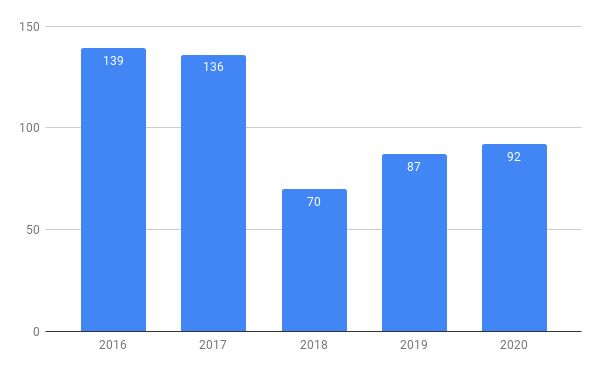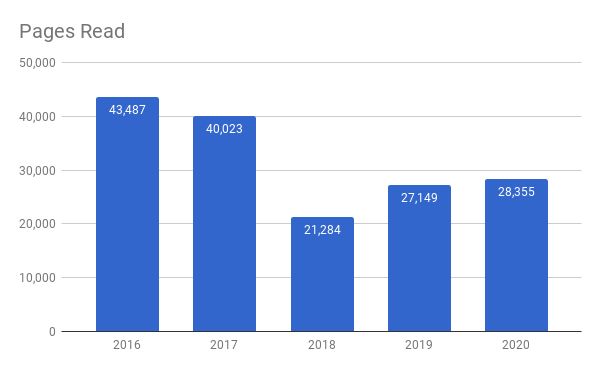|
|
One small historical bright side to the COVID-19 pandemic is that, despite a variety of conspiracy theories, it hasn’t (so far) produced riots. That wasn’t the case during an 1831-32 cholera pandemic in England. Other countries saw riots but one of the more notorious ones involved the death of a very young boy in Manchester, England.
The cholera pandemic reached England in October 1831. Between May 29 and June 10, 1832, Liverpool saw eight major street riots sparked by belief that cholera victims were taken to hospitals to be killed by doctors for use in anatomical dissection. In fact, on August 1, Parliament adopted the Anatomy Act to regulate the practice of anatomy because the demand for bodies meant “divers [sic] great and grievous Crimes have been committed … for the single Object of selling” the bodies. (Those who engaged in certain methods of providing bodies, i.e., grave robbers, were also known as “resurrectionists.”)
 “Cholera, the unwanted immigrant” On Friday, August 31, John Brogan, variously reported as three or four years old, fell ill with cholera and was taken to the Swan Street Cholera Hospital in Manchester. He died four hours later. The boy’s grandfather saw the boy’s body while making funeral arrangements on Saturday. Before the funeral Sunday morning, though, he noticed there wasn’t a name on the coffin. According to the Manchester Times, when he insisted it be opened “it was discovered that the head of the corpse had been taken off close to the shoulders and a brick put in its place!” Still, the burial proceeded.
By late afternoon, the grandfather led a large group of people to the cemetery. He dug up the coffin to prove he was telling the truth. Three men carried the coffin to the hospital followed by a crowd yelling, “Burn the hospital!” Some 2,000-3,000 people eventually gathered at the hospital and a mob smashed its windows, threw furniture into the streets and set set the furniture afire. Doctors and nurses escaped by climbing a ladder over a back wall. Police eventually took some rioters to a lock-up but a large part of the crowd followed. The men who’d carried the coffin to the hospital began parading it throughout Manchester, collecting money from those who wanted to look at the body. Meanwhile, the mob at the lock-up began destroying it and several troops of hussars were dispatched. Rioters fled the arriving cavalrymen, who spent the night patrolling the streets.
A surgeon from the hospital tracked down John’s head at the lodging house of Robert Oldham. Oldham, who dispensed medicines at the hospital, had removed the boy’s head after bribing a nurse. The surgeon wrapped the head in a handkerchief and reattached it to the body. The boy’s entire body was interred on the evening of September 3. The Manchester Times reported that a “great crowd of persons” gathered for the service and “the chapel was filled almost to suffocation.”
Although a warrant was issued for Oldham’s arrest, he’d left the hospital upon learning the head had been discovered. He not only fled Manchester, he was believed to have left England. He never faced trial. Ten men appeared in court on riot-related charges on September 3 but charges against half were dismissed for lack of evidence. The three men who paraded the body through town were also arrested but one was discharged because he was only seen begging in the crowds.
The pandemic died out in England before the end of 1832. In light of modern pandemic politics, it’s perhaps ironic the disease was called “Asiatic cholera.”
Infectious diseases … have probably been the most dangerous of enemies of mankind, much more so than war and mass murder.
Folke Henschen, The History and Geography of Disease
As a general rule, I don’t reread books. Especially with books I really liked, I’m afraid reading them again might detract from my initial enjoyment. I also figure rereading is a missed opportunity to read something “new.” In 2019, though, I reread six books, more than half of all the books I reread in the prior decade. This was because they were used in foreign lit book studies I led that year. I was happy to see my views of them weren’t affected.
The rereading I hate occurred last week, one that’s totally inadvertent. Perhaps because of my PTSD, I’ve had more books laying around the house and partially read ebooks than ever before. One morning I once again saw I was more than halfway through an ebook called The Pope Who Quit. For whatever reason, I decided that, come hell or highwater, it was the day to finish the book. After accomplishing my mission, I went to add the book to Goodreads and I discovered I’d read it in 2013 within eight weeks of Pope Benedict XVI announcing his resignation.
While the book never seemed familiar, I remember thinking (once again) that Goodreads ratings should have half star increments. Turns out, I gave the book 2 stars in 2013 and decided that was still fair. Similarly, I listed to an audiobook last year that at times inadequately derivative of other books I’d read. When finished, I discovered I’d read the book some 3 years before — and gave it two stars.
I don’t plan to change my rereading policy. It’s akin to when I decided to try to avoid large books (500+ pages) because I’m old and there’s only so much time left. I will mention, though, the two books I’ve read the most. One four times and the other three times, both over the course of three decades. In fact, it may be time to reread the first one.
But how can you read a book you’ve already read when you know there are all those other ones out there?
Emma Bull, Territory
Once again, Trumpists, right-wingers and the like display an overabundance of cognitive dissonance in one of their latest hissy fits. This tizzy stems from President Donald Trump being banned by Twitter, Facebook and other mainstream social media sites and that some 70,000 accounts being suspended after the Capitol riot for espousing the QAnon lunacy and similar drivel.
None of them are happy, The latest example was when Twitter yesterday suspended the account of Congresswoman QAnon nut Marjorie Taylor Greene for 12 hours. Greene, of course, almost immediately issued a sanctimonious statement claiming “Americans [sic] rights are being stripped away.” She said, “Congress must act, and act swiftly, to protect free speech in America.”
That’s the display of cognitive dissonance — or utter stupidity. Trumpists agree with their evil master’s belief that textualism is a crucial part of his vision for the judiciary. In fact, he bragged to Fox News that he considered new Supreme Court Justice Amy Coney Barrett a textualist. Textualism is well-explained by the Congressional Research Service, “Textualism is a mode of legal interpretation that focuses on the plain meaning of the text of a legal document.”
So what does our free speech clause say? “Congress shall make no law … abridging the freedom of speech, or of the press.” The plain meaning of the First Amendment is that it constrains the government. Facebook, Twitter and other social media platforms are private businesses, not government. They have no legal obligations under the free speech clause. In fact, just as the First Amendment bars compelled speech, it also means Greene, QAnoners or anyone can’t force any media, business or person to provide a forum for their particular message.
Once again, the “victims” insist everyone do exactly what the Constitution says — except when it affects them.
The right to speak freely does not include the right to be taken seriously. And it certainly doesn’t include the obligation that others must supply you with a platform.
Johan Norberg, Dead Wrong, “Free Speech“
For a voracious reader like me, retirement should be close to nirvana. In fact, before I retired at the end of 2016 I had a magnet on a file cabinet in my office saying, “Born to Read, Forced to Work.” And a self-imposed COVID lockdown should add even more time for reading. Yet as the charts below demonstrate, my reading declined dramatically. The reason: Trump.
It’s a mental toll to live under a president — fully enabled by the GOP — who is (limiting myself to words starting with the letters “c” and “d”) childish, clownish, clueless, corrupt, cowardly, crass, criminal, crude, cruel, dangerous, delusional, demagogic, depraved, devious, dim, disgraceful, dishonest, disparaging, and disreputable. It truly is a form of PTSD — President Trump Stress Disorder.
 Books read
 Total pages read Think I’m exaggerating the Trump effect? Let’s look closer.
In 2017, the number of books red was about the same and there was a slight decline in total pages. Yet that needs to be put in context. I was still reviewing books at that time, creating reading obligations. I posted 29 book reviews that year and read several books from publishers for which reviews weren’t posted. Notably, the last one review — also the last post until this month — was on December 18. I also read 6 book as a judge for the John Leonard Prize, awarded by the National Book Critics Circle each year for the best first book in any genre. Thus, more than a quarter of the books I read were “obligations.”
Some themes also appeared in 2017. One is reflected in this list, which I’ll let you interpret:
The next theme is more obvious:
Finally, I’ve told a lot of people over the last four years that I feel like I’m living in a science fiction novel. My reading may reflect that. From 2011-2016, science fiction novels accounted for about 12% of my reading. It increased slightly in 2017 but there’s an important trend. Of the 22 science fiction novels I read that year, 59% were in the last half of the year. During 2018-2020, a full 28% of my reading consisted of science fiction books. It’s likely immersion in a science fictional world I could leave figures into the gradual increase in reading over those years. An invented dystopia is far more acceptable than a psychotic Trumpian nation.
Hopefully, this week this strain of PTSD start disappearing.
I divide all readers into two classes — those who read to remember and those who read to forget.
William Lyon Phelps, Yearbook
First post in three years. One effect of Trump’s American Dystopia. I’ve abandoned social media, don’t watch television news and really only scan headlines to avoid becoming furious, despondent or both.
As he nears the exit, there’s plenty of people out there who seem shocked his supporters totally fucking crazy lunatics storming the Capitol. Where have they been for the last four years? And what about those who turned a blind eye and enabled this POS? That clearly includes South Dakota’s entire congressional delegation and our excuse for a governor.
For anyone who’s been sleeping, David Leonhardt of the New York Times summarized the last for years explaining the need for impeachment in his Jan. 11 newsletter.
He rejects basic foundations of American government that other presidents, from both parties, have accepted for decades.
He has tried to reverse an election result and remain in power by persuading local officials to commit fraud. He incited a mob that attacked the Capitol — and killed a police officer — while Congress was meeting to certify the result. Afterward, Trump praised the rioters.
This behavior was consistent with Trump’s entire presidency. He has previously rejected the legitimacy of election results and encouraged his supporters to commit violence. He has tried to undermine Americans’ confidence in the F.B.I., the C.I.A., the military, Justice Department prosecutors, federal judges, the Congressional Budget Office, government scientists, government health officials and more. He has openly used the presidency to enrich his family.
In the simplest terms, Trump seems to believe a president should be able to do whatever he wants. He does not appear to believe in the system of the government that the Constitution prescribes — a democratic republic.
Yet there is a significant chance he could win the presidency again, in 2024. He remains popular with many Republican voters, and the Electoral College currently gives a big advantage to Republicans. If he is not disqualified from future office, Trump could dominate the Republican Party and shape American politics for the next four years.
And as the quote below demonstrates, the 25th Amendment is a far weaker solution that impeachment
I’ll be posting more in a few days about something I attribute almost entirely to feeling like I’ve been living in a science fiction novel. But for those who question why you would impeach a president just before he leaves office, listen to Leonhardt.
Judgment in cases of impeachment shall not extend further than to removal from office, and disqualification to hold and enjoy any office of honor, trust or profit under the United States[.]
U.S. Constitution, Art. I, Sec. 3
|
Disclaimer 
Additionally, some links on this blog go to Amazon.com. As an Amazon Associate I earn from qualifying purchases. There is no additional cost to you. Contact me You can e-mail me at prairieprogressive at gmaildotcom.
|










